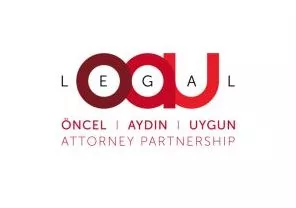Operating as legal entities established under the Turkish Commercial Code ("TCC"), the management and administration of media organizations in Turkey are, by all means, subject to the provisions of the TCC. This fact brings various duties and liabilities on the table for the legal representatives (e.g. Board of Directors/Managers members and managing directors with representation authority) of such companies. While the representatives must adhere to the principles mentioned under TCC, there are several other legislations that impose additional legal liabilities on the representatives of media companies. Below is a quick summary of the most common legal issues the executives and representatives of the media companies in Turkey must bear in mind before taking office.
1- General Liability under TCC
According to Article 553 of the TCC, Board of Directors/Managers members of media companies who breach their duties arising out of the law, or the articles of association of the company due to their fault, are liable against the shareholders and the creditors of the company for the damages that the company incurs as a result of such breach. Any shareholder can request compensation for damages; however payment may only be made to the company. In case of bankruptcy, creditors may also claim damages through the bankruptcy administration.
Following are the main duties of Board of Directors Members/Managers under the TCC:
- Duty of Non-Competition
- Duty of Care and Loyalty
- Duty of Refraining from Attending Meetings Related To Personal Interests
- Duty of Confidentiality
- Duty of Indebtedness to the Company
- Duty of Refraining from Engaging in Personal Transactions with the Company
In case certain powers and authorities of the Board of Directors members are delegated (other than those that cannot be delegated due to TCC or the articles of association) to certain members or third parties; the general rule is that the delegate himself/herself is liable for the damages incurred by the company, its shareholders or creditors. That said, the Board of Directors/Managers members who delegate their powers may only be held liable if it is proved by the plaintiff before court that such members failed to act with a reasonable duty of care when choosing their delegate.
2- Criminal Sanctions under TCC
Under the TCC, Board of Directors/Managers members may also be criminally liable for the following actions, resulting either from an act or an omission:
- Inaccurate/false documents, information and declarations,
- Misrepresentation of company share capital,
- The irregularity in valuation of in-kind capital,
- The failure to keep company books duly,
- The failure to launch company web site,
- The breach of confidentiality duty.
3 – Financial Liability for Public Debts
According to Article 35 of the Law on the Procedure of Collection of Public Debts numbered 6183 and Article 10 of the Tax Procedure Law numbered 213, legal representatives (e.g. Board of Directors/Managers members with representation authority) are personally liable for the public debts (taxes, duties, charges, social security premiums as well as penalties and interests) of a legal entity which cannot be fully or partially collected or which are determined by the relevant administrative authority to be uncollectible from the assets of such legal entity.
In other words, in case an administrative authority is convinced that public debts of a company are not likely to be collected from such company, the said authority may initiate a public proceeding against its authorized representatives, regardless of their fault or negligence. Such representatives also face being subject to exercise of a precautionary attachment on their personal assets by the decision of the relevant authorities.
As an important note, the above-mentioned liability only arises for the public debts that occur during the term of office.
4- Liability under Law on the Establishment of Radio and Television Enterprises and Their Media Services ("Law No. 6112")
According to Article 33/1 of the Law No. 6112, if a media company undertakes broadcasting activities without a valid license or despite the Radio and Television Supreme Council ("RTÜK") has temporarily ceased the broadcasting licence; the Board of Directors members and the general managers of the companies may face imprisonment sentence that range between 1 to 2 years and judicial fines from 1,000 up to 5,000 days. This provision is also applicable if the company makes broadcasts that do not fall under the scope of its license type.
As per Article 25 of the Law No. 6112, private media service providers are obliged to store each one of their broadcasts for a one year period and provide these records to RTÜK within ten days of receiving a written request from RTÜK. Should the private media service provider fails to store its broadcasts for one year or does not provide the stored records to RTÜK within ten days, the managing director of the company may face judiciary fines that range between 1,000 and 5,000 days. Moreover, if the records provided to RTÜK are not the ones that were requested, or the records have been damaged, removed or deleted the managing director may also face judiciary fines from 5,000 to 10,000 days.
Article 46 of the Law No. 6112 also state that the responsibility of the broadcasts fall on the managing director of the company (together with the director and producer of the content). However, the persons responsible for the management and representation of the company (i.e. authorized signatories) may also be held responsible for the broadcasts they have authorized without the managing director's review or contrary to his/her opinion. In such a case the responsibility of the relevant content shall shift to the authorized signatories.
5- Liability under Law on the Work Permit for Foreigners ("Law No. 4817")
As many media companies employ non-Turkish employees, keeping record of proper work permits is crucial. According to Article 21 of the Law No. 4817, the representatives of the employer (i.e. managing directors and others with signature authority) may be held liable for employing a foreigner without a valid work permit. In such case, the employer or the representatives of the employer may be fined 5,000 Turkish Lira as well as held responsible for the accommodation, travel and health expenses for the relevant foreign employee as well as his/her spouse and children.
6- Liability under Law on the Basic Provisions on Elections and Voter Registers ("Law No. 298")
According to Article 149/A of the Law No. 298, the authorized persons within the private television and radio companies may be held liable in case a broadcast ban is issued by the Supreme Election Board for broadcasting content that is contrary to the principles laid out for the election related broadcasts. In such case, the company representatives may face administrative monetary fines that range between 15,000 and 100,000 Turkish Liras.
7- Liability under Regulation on the Procedures and Principles of Internet Broadcasting
The broadcasting representative of a company which does not carry out the access restriction decision given by the Criminal Judgeship of Peace may be subject to an imprisonment sentence ranging between 6 months up to 2 years.
The content of this article is intended to provide a general guide to the subject matter. Specialist advice should be sought about your specific circumstances.

